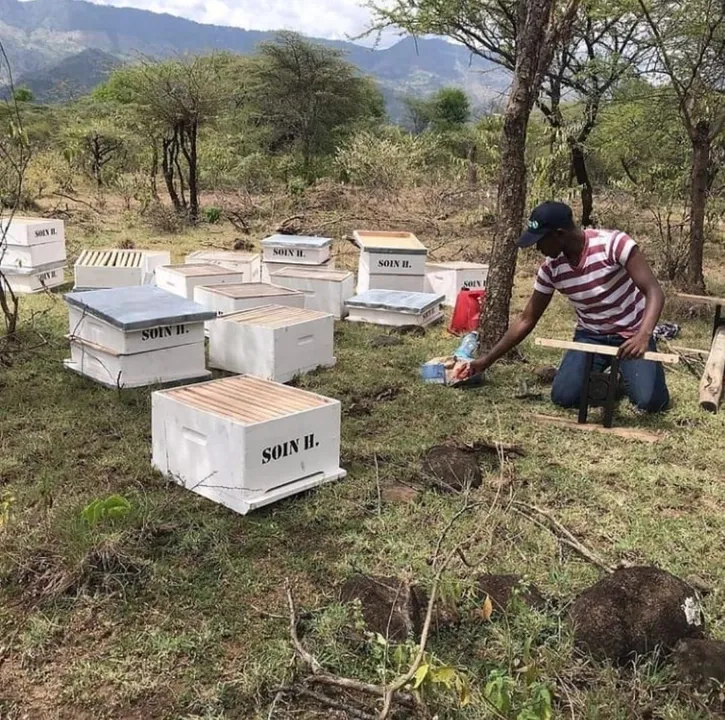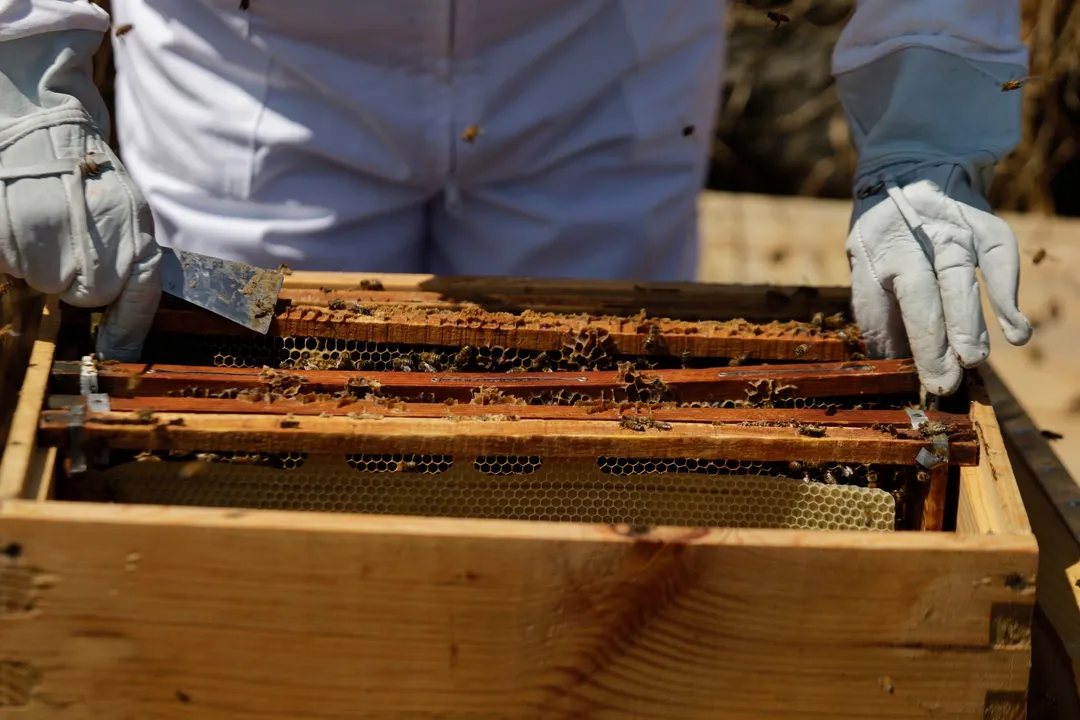Sport
UN warns protecting pollinators enhances biodiversity and critical ecosystem services, such as soil fertility, pest control, and air and water regulation.
In Kerio Valley, between the Tugen Hills and the Elgeyo Escarpment in Kenya, Judith Jebeth, a passionate beekeeper, tends to her bees humming excitedly in hives.
Her love for bees extends beyond the honey they produce; it's about safeguarding a vital part of ecosystems and securing livelihoods for rural communities. But a troubling trend – forest destruction and tree felling for charcoal – is threatening the very existence of bee swarms, leaving Judith deeply worried.
The Kenyan beekeeper’s concerns echo a stark warning from the UN, released on May 20, the World Bee Day, that bees and other pollinators, such as butterflies, bats and hummingbirds, are increasingly under threat from human activities.
Statistics from the UN show current species extinction rates are 100 to 1,000 times higher than normal due to human impact, with close to 35% of invertebrate pollinators, particularly bees and butterflies, facing global extinction.

“Pollinators are increasingly threatened by habitat loss, unsustainable agricultural practices, climate change and pollution. Their decline jeopardises food production, increases costs and exacerbates food insecurity, particularly for rural communities,” the UN said.
Ripple effect
"There is a lot of migration; the bees are disappearing, especially because of climate change and human activities such as charcoal burning," Judith explains to TRT Afrika. "Too much pesticide is killing the bees, so it’s really affecting the beekeeping practice everywhere in the country."
The decline in bee populations isn't just a concern for beekeepers; it's a global threat to food supply.
The UN emphasises that pollination is fundamental for the survival of ecosystems. If the dangerous activities impacting bees continue, nutritious crops like fruits, nuts, and many vegetables could be increasingly replaced by staple crops such as rice, corn, and potatoes, leading to imbalanced diets.
"Nearly 90% of the world’s wild flowering plant species depend, entirely, or at least in part, on animal pollination," the UN states, "along with more than 75% of the world’s food crops and 35% of global agricultural land."

Judith has witnessed this firsthand. "When you go to areas where people used to do beekeeping, they no longer do because people have moved into other practices, such as cutting down trees to sell as timber, and this is driving bees away," she observes.
Path forward
The Kenyan government has pledged to plant 15 billion trees by 2032 to increase forest cover to 30% and has urged every Kenyan to plant at least 50 trees.
This initiative offers a glimmer of hope, aligning with Judith's belief that a revitalised beekeeping profession can sustain livelihoods if properly practised.
"We are trying to get the bee farmer to move from the traditional hives to the modern hives," Judith explains. "They must learn to do clean beekeeping. The modern beekeeping venture also helps know what to do to make the bees not migrate, to make the bees stay within the area."
The UN's goal for World Bee Day is to strengthen measures protecting pollinators, contributing significantly to global food security and hunger eradication.
"Bees and other pollinators also serve as indicators of environmental health, providing insights into ecosystems and the climate," the UN notes. "Protecting pollinators also enhances biodiversity and critical ecosystem services, such as soil fertility, pest control, and air and water regulation."

Judith's message is urgent: "People must go back to the habit of saving forests and helping rivers come. When you kill the forests, you kill an integral part of beekeeping; they simply migrate to better areas."
The UN hopes to intensify campaigns promoting nature-friendly agricultural practices like agroecology, intercropping, agroforestry, and integrated pest management to sustain pollinators, ensure stable crop yields, and reduce food shortages and environmental impacts.
Comments
No comments Yet
















Comment